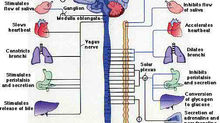Trans Derivational Search in Hypnotherapy
- tomjlynam

- Oct 3, 2014
- 2 min read
One interesting aspect of the mind, and one which is relevant to hypnotherapy, is a process called trans derivational search. It is a process of matching experiences to symbols. The symbol system most commonly used among humans is language and the words within that language. We frame and describe the world with these symbols and use them to communnicate and express ourselves. So, for example, if someone has a car crash they are going to attach a different experience and meaning to the word 'crash' compared to someone who has not experienced a car crash. The mind searches for the symbol which it believes best fits the experience, but because people have different experiences, different words mean different things to different people. In hypnotherapy we must be careful not to assume what people mean when they use words and try to explore the experiences they attach to the words, this helps us to avoid misunderstanding and build accurate therapy plans.
A related process is the mind's tendancy to use group words together by semantic meaning. For example although 'wheel' and 'tyre' are completely different objects they are semantically related as the components of a car meaning that the word 'car' will often be produced during the trans derivational search because the meaning of the words are related. These examples of the mind's search for meaning are subconscious processes that we are often unaware of.
Another subject which is important in relation to trans derivational search is the meta model; this is the idea that people tend to generalise and delete information according to their thinking patterns. A common expression may be 'they are always bullying me', but what do people mean by 'they'? In order for this statement to make any sense we must find out who 'they' are and what is the reason behind such vague terminology. The meta model is often subconsciously used when not wanting to give too much away, forming a layer of protection by obscuring details, or when there is an assumption that the other person knows to whom or what is being referred to. We will cover the meta model in more detail in future blog posts.









Comments